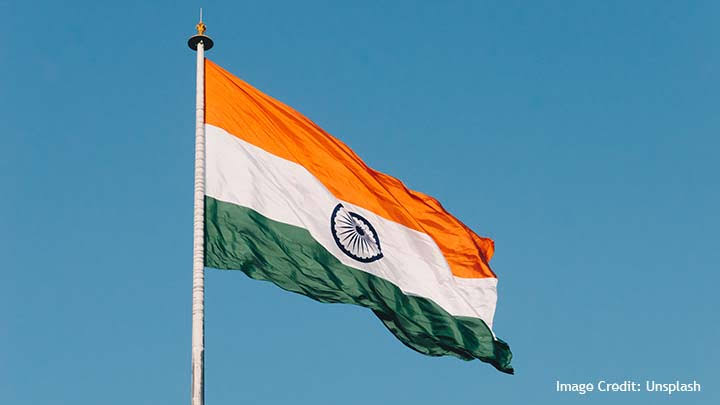India makes a strategic statement on Multipolarity

By Colonel Awadhesh Kumar
India has gone for international engagements through BRICS, SCO,G20 and QUAD. Within the Indian Ocean region it has ties through SAARC and BIMSTEC. Then it has also gone for relationship with groupings like ASEAN.
India has also established bilateral ties with major countries like Russia, USA, France, Japan and Australia. and with all countries in South Asia (less Pakistan), South East Asia and many in the Middle East too. UAE is the third largest trading partner of India, Saudi Arabia is fifth, Iraq is seventh, Indonesia is eighth, Malaysia is 17th, Qatar is 23rd and Bangladesh is 25th largest.
Though Middle East is itself under conflict, India’s diplomacy has ensured its good relationship with conflicting parties. Thus there is no pressure on India from conflicting parties like Saudi Arab-Israel, Iran – Saudi Arabia and Israel -Iran. India’s old policy of favouring a two-state solution with East Jerusalem as the capital of an independent and viable Palestinian state remains unchanged. What has changed is now how India reinterprets the meaning and the context of its Palestine policy.
After the October Hamas terror attack on Israel, Indian media and public opinion overwhelmingly supported the Israeli military response in Gaza as for India a terror act is a terror act. Hamas started the attack as a pure heinous terrorist action and is now paying for it. New-Delhi-based Arab diplomats may be at a bit of unease over the increasingly hostile public opinion towards Palestine but are in no position to support the Hamas terrorists. Of course India will always urge the Israelis to go for a ceasefire if Hamas is ready to release the hostages without any conditions attached.
Government of India’s support to Tel Aviv is no secret to New Delhi based diplomats. They knew that New Delhi no more does any balancing act but sees things from its own view point. Thus all actions taken are in keeping the National Interest at the top. India, especially since 2014 views Israel as a country that always stood with India in times of crises with Pakistan. Israel is also fully aware of Pakistan’s terror based support to separatism in J& K and its illegal clinging on to POK.
However Israel too has been trying to normalize its relationship with Pakistan and another Muslim nation, Indonesia. India already has a close bilateral relationship with Indonesia.
The India-Israeli ties has been exclusive and because of this Israel which along with Pakistan and Turkey, was a key supporter of Azerbaijan’s recapture of Nagorno Karabakh in 2020, has slowly veered away from its support to Azerbaijan. Armenia is now relying on Indian military supplies. Since 2014, with Narendra Modi as PM, India has decided to end its previous reluctance and isolation from regional affairs, reprioritising its relations with Israel, Gulf countries and South East Asia.
In an ongoing competition for influence in the Gulf between the United States and China, India is quietly entering as the third pole to ensure Gulf countries’ and ASEAN countries security and stability. Now India’s growing influence in the region right unto Africa is dwarfing the Chinese influence in the region. India is ready to offer strategic and security support to the region in the newly upgraded relations. Iran-Saudi normalisation has also helped India as evident from operationalization of Chabahar Port. After all the name Indian Ocean is just not like that.
For India, Iran’s real strategic value is not in the Gulf but in Central Asia where Iran supports India’s efforts in multiple connectivity projects. In this sense, India’s advancing relations with Israel have received little or muted objection from Iran.
Till now it was India which had been importing key weapon systems from Israel to take on China and to keep Pakistan under control. However after Hamas attacks, there have been reports that now it is India that has started supplying certain essential arms and ammunition in bulk to Israel. However neither Arab states nor Iran have reacted. The supply of ammunition, yet to be confirmed officially, is a significant statement on India’s diplomacy.
India’s Ministry of External Affairs have underlined Hamas’ actions on October 7, 2023, as acts of “terrorism,” a position taken by most of world’s governments and silently supported by Gulf countries, including Saudi Arabia and the UAE.
The Arab-Israeli crisis will continue to shape the future balance of power in the Middle East, mainly against the Western countries. Saudi Arabia has to be cautious and sensitive to the crisis because its domestic politics is more susceptible to its citizens perceived views. It cannot be supporting Israel at the cost of a Palestinian state. Iran, with its regional ambitions, enjoys popular support in Lebanon, Yemen, and parts of Gulf societies. Thus Iran remains an influential player whose support is crucial to maintaining any peace mechanisms.
Though Egypt is wary of alternative routes being created by the India- Iran…Central Asia …Europe Economic Corridor. Then talk is on of a Israeli plans to carve out a new canal between the Red Sea and the Mediterranean via the occupied Gaza.
India is seeking opportunities for defence exports after developing a robust defence industry. By selling weapon systems to Philippines and Vietnam, India has already made a political statement towards China. Now selling ammunition to Israel during a war and visit to Russia on first International outing by PM Modi showcases another set of Statements of India’s geo strategy.
The Indian Ocean Region is now fed of Western interference which has been there since 1750 onwards and now are seeking regional security providers.
In the post-Gaza war period, regional countries like Egypt, Iran, UAE and Saudi Arabia and Oman may actively seek the participation of India, while Turkey, Pakistan and few others may go for China. India therefore, must be ready for a broader regional security engagements. Even Afghanistan needs India to resolve things.




